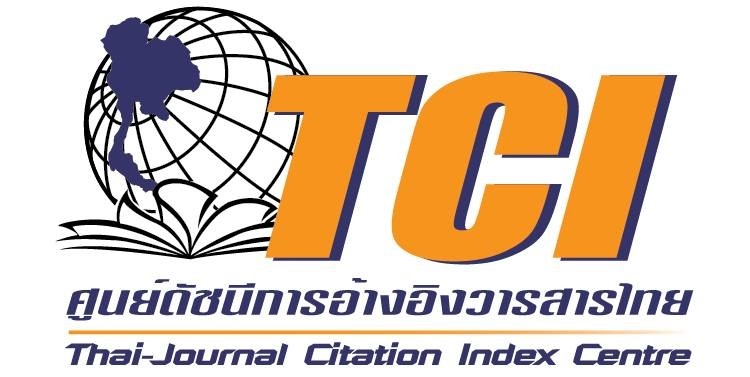Learning innovations in science and technology subjects by organizing learning in a cycle of inquiry with using games high school Chonburi province
คำสำคัญ:
learning innovation;, Science and technology;, cyclical learning management;, knowledge inquiryบทคัดย่อ
In this class, the purpose of action research is to: 1. develop learning innovations in science and technology subjects. By combining the use of games with the cycle of inquiry (5 E) to organize learning 2. To compare academic achievement before and after studying using the learning arrangement using the cycle of inquiry (5 E). together with using games 3. To investigate students' satisfaction with the inquiry-based learning cycle (5E) combined with games. This is quantitative research. Target groups used in research: I am a fifth-grade student. Wat Thung Hiang School, Chonburi Province, Semester 1, academic year 2023, 1 classroom, 30 people, which are obtained through purposive sampling The research tools included: 1. an assessment form for consistency in the development of learning innovations in science and technology subjects. 2. Pre-study and post-study tests 3. A satisfaction assessment form. Statistics used in data analysis include percentage, mean, and standard deviation.
The research results found that organizing learning using the cycle of inquiry (5E) with the use of games. Grade 5 developed the water cycle with an efficiency of 84.29/85.57 results from using innovations. Academic achievement of students who study with the inquiry-based learning management model (5E) combined with games. The academic performance after studying was higher than before studying at 12.14 points, with a standard deviation of 0.28, indicating that students were more interested in learning. Able to use knowledge gained from study in gaming activities. Make the students answer the questions correctly. and had increased academic achievement in science subjects.
เอกสารอ้างอิง
Kanokrat Wutthiwichaphon. (2012). Results of using multimedia together with inquiry-based learning methods that affect academic achievement in biology for Mathayom 5 students at Dvaravati School. Nakhon Pathom Province (Master's degree thesis). Silpakorn University is in Bangkok.
Ministry of Education (2008) Basic Education Curriculum (B.E. 2008). Bangkok: The Thai Agricultural Cooperatives Association's printing house.
Kannika Kwankhiri. (2014). Developing analytical thinking and lasting understanding. of Mathayom 1 students that organizes inquiry-based learning. Master's degree thesis, Silpakorn University is in Bangkok.
Kanyani Niam Leaf and Mayuso Guno (2015) The development of computer-assisted instruction lessons is a type of educational game on the periodic table. For Mathayom 4 students (master's degree thesis), Bangkok: Srinakharinwirot University.
Kundhari Pet Rathaweeporndej et al. (2014). The best method for teaching science. This led to modern teachers' learning management. (2nd printing). Bangkok: Aksorn Charoenthat.
Khamsak Pitchayanurat. (2008).Science teaching activities are being developed. Mathayom 2 students are taught the inquiry-based model (Master of Education Thesis). Khon Kaen: Khon Kaen University.
Duangchan Kaewkongphan. (2014 ). Games are used to develop scientific process skills. of students at the 3rd level (Master of Education Thesis). Chiang Mai: Chiang Mai University.
Tisana Khaemmanee (2013). Teaching Science and Knowledge for Organizing an Effective Learning Process (10th printing). Bangkok: Chulalongkorn University Press.
Teerawat Duangjaidee. (2013 ). Learning outcomes are developed. About living things and the environment of students in Grade 6 by organizing inquiry-based learning (Master of Education Thesis), Silpakorn University is in Bangkok.
Phongsri Kongsingh. (2013). Report on the development of science games that supplement learning management. Knowledge inquiry process model for science subjects about substances and their properties of Mathayom 1 students at Samakkhi Witthayakhom School (research report). Chiang Rai.
Jedo Loh (2014). Effects of inquiry-based learning management on science learning achievement. Scientific Process Skills and Students' Attitudes Toward Science in a Multicultural Society (Master of Education Thesis) Pattani: Prince of Songkla University. Pattani Campus.
Rung Arun Kantueng. (2015). A study of the science achievement and attitude towards learning science of Mathayom 3 students who received learning activities using science games (Master of Education Thesis). Pathum Thani: The Royal Alongkorn Rajabhat University is under the Royal Patronage.
Widad Hayitaher. (2013). The 7-step learning cycle teaching model yields results. (7E) on academic achievement, problem-solving ability, and attitudes towards studying chemistry among Mathayom 4 students in a multicultural society (Master of Education Thesis). Pattani: Prince of Songkla University.
Wilai Wanna Jitsawaeng. (2014). A study of academic achievement in science subjects. Regarding the reproductive system by using games to teach with Mathayom 2 students, academic year 2009 (research report). Nakhon Ratchasima.
Siripimon Hongmae. (2014). Mathayom 4 students' scientific problem-solving abilities and learning characteristics are developed through inquiry-based learning (thesis for the Bachelor of Education degree and Master's degree). Silpakorn University is in Bangkok.
Institute for the Promotion of Teaching Science and Technology. The Biology Branch (IPST) (2015). A teaching model that fosters high-level thinking processes. Biology is a high school level subject. A basic education curriculum. Bangkok: Academic Development Publishing House.
Angkana Langkawong. (2014). Students in the 3rd grade were taught problem-solving abilities by supplementing with science games (Master of Education Thesis). Chiang Mai: Chiang Mai University.
ดาวน์โหลด
เผยแพร่แล้ว
รูปแบบการอ้างอิง
ฉบับ
ประเภทบทความ
สัญญาอนุญาต
ลิขสิทธิ์ (c) 2024 Journal of Public and Private Issues

อนุญาตภายใต้เงื่อนไข Creative Commons Attribution-NonCommercial-ShareAlike 4.0 International License.


 ผศ.ดร.ละมัย ร่มเย็น
ผศ.ดร.ละมัย ร่มเย็น






